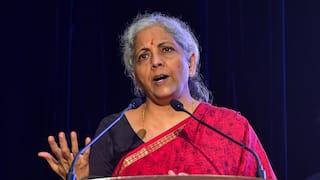Year Ender 2023: Major Decisions In The Field Of Education
This year, the education sector has witnessed major decisions such as setting up foreign university campuses, implementing a credit framework, revising curricula and more.

In the realm of India's education sector, the year 2023 unfolded with a tapestry of transformative decisions. Throughout this year, the education sector has experienced significant developments including the release of a draft for opening foreign university campuses in India, the introduction of a credit framework, curriculum revisions, mandatory internships and Central Universities (Amendment) Bill, 2023. Here are 5 major decisions in the field of Education.
5 Major Decisions In The Field Of Education
1. Setting Up Foreign University Campuses In India
The University Grants Commission (UGC) released the draft UGC (Recognition and Grant of Equivalence to Qualifications obtained from Foreign Educational Institutions) Regulations, 2023 in August. This was the first step in the establishment of foreign university campuses in India. In November, UGC introduced the "University Grants Commission (Setting up and Operation of Campuses of Foreign Higher Educational Institutions in India) Regulations, 2023." These regulations, aligned with the National Education Policy (NEP) 2020, aim to establish a robust framework for the entry and operation of foreign higher educational institutions (FHEIs) in the country. Notably, Deakin University will be the first foreign university to open its campus in India. The 25,000 sq ft campus of Deakin University is set to be inaugurated in January 2024, likely during the Vibrant Gujarat Summit.
2. National Credit Framework
The University Grants Commission (UGC) released the final draft of the National Credit Framework (NCrF) in April. Students now have the opportunity to accumulate educational credits through diverse learning avenues—be it offline, online, or a blend of both. This innovative framework is set to become a standard across all educational institutions, aligning itself with the tenets of the National Education Policy 2020 (NEP2020) that emphasizes the fusion of academic education and vocational training. The National Credit Framework (NCrF) serves as a bridge between these two educational realms, enabling a seamless transition for students opting to shift from traditional schooling to vocational learning. In a post-pandemic educational landscape marked by the rise of homeschooling, the absence of a validation framework posed challenges. Now, the NCrF steps in to provide validation through certificates and diplomas, ensuring recognition and legitimacy for students venturing into non-traditional learning paths. This framework aims to foster a culture of lifelong learning and adaptability, offering students flexibility and validation beyond conventional educational boundaries.
3. NCERT Removes Portions Related To RSS, Gandhi & Godse From Books
In April, the National Council of Educational Research and Training (NCERT) removed paragraphs from Class 12 Political Science textbooks that contained information about the ban briefly imposed on Rashtriya Swayamsevak Sangh (RSS) by the then government after the assassination of Mahatma Gandhi. Along with this, paragraphs which stated that Gandhi's quest for Hindu-Muslim unity provoked Hindu extremists have also been removed from the curriculum. Significantly, NCERT made several changes in the textbooks of Class 6 to Class 12 last year. Among these, chapters titled 'Rise of Popular Movements' and 'Era of One Party Dominance' were removed from Class 12 textbook, 'Politics in India since Independence'.
However, NCERT Director Dinesh Prasad Saklani clarified that the absence of some portions is a result of rationalisation process that was done to reduce burden of students during the Covid period.
4. UGC Makes Internships For UG Courses Mandatory
Undergraduate students pursuing various degree programs—be it a three-year UG degree, a four-year UG degree (Honours), or a four-year UG degree (Honours with Research)—will now be mandated to undertake internships. In Octorber, the University Grants Commission (UGC) released preliminary guidelines stipulating this obligation, in line with the principles outlined in the National Education Policy (NEP) 2020, which accentuates the importance of research and innovation in education. Under these guidelines, undergraduate internships will be categorised into two types: internships for enhancing employability and internships for developing research aptitude.
5. Lok Sabha Passes Central Universities (Amendment) Bill, 2023
The Lok Sabha passed the Central Universities (Amendment) Bill, 2023 on December 7, 2023, marking a significant milestone for the establishment of the 'Proposed 'Central Tribal University in Telangana.' This legislation sets the stage for the creation of the envisioned 'Sammakka Sarakka Central Tribal University' in Telangana, intended to provide superior higher education and research opportunities, particularly catering to the tribal communities in the region.
Under its quality higher education and research ambit, the new Central Tribal University shall promote and cater advanced knowledge systems to the tribal population of the country by providing instructional and research facilities in tribal art, culture and customs and advancement in technology.
Education Loan Information:
Calculate Education Loan EMI
Related Video
Delhi Election Results 2025: Counting Begins; BJP Poised for Historic Comeback in Delhi, Exit Polls Suggest | ABP News
Top Headlines





































